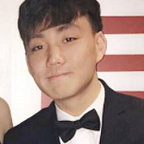Day 1 — Tell Your Story…
If you’re facing writer’s block, think about a question you’d like to answer.
For me, the question that I’ve been asking myself for the past few months has been this:
“How do I become a better writer?”
The next question that may arise is — what constitutes “better”? How can I objectively say if my writing is good or not?
Is it by the number of views and claps that the article gets? If 10 people say that my writing is good, could I use that as justification? If a famous editorial site decides to publish it on their platform, would it be considered “good writing”?
But the judgment of “good writing” cannot simply be judged solely by what other people think. Otherwise, you will live and die by the numbers. You will allow other people to control what you decide to write about because you will be focused on “success metrics” and write whatever people have historically liked.
It’s not often that I write a piece that I’m very proud of. I’m very self-critical and lazy, and I rationalize my lack of editing by calling it a “stream of consciousness”.
I tell myself that it’s not raw and emotional if I revisit it and edit what I was feeling in the moment. It allows me to commit atrocious grammatical sins and justify typos.
But for the most part, people have been forgiving — as long as it doesn’t interfere with their reading experience too much, they don’t call it out.
Since I am very self-critical, that means the pieces that I am proud of stand out more.
I’m sure writers on Medium have experienced this, but the stories that I have been proud to publish were the ones that often “performed” poorly.
The stories where I had been extremely vulnerable and “soulful” (whatever that means) and had put a lot of thought before deciding to publish were met with silence.
Some of the best-performing stories I’ve written were published without a second thought (I realize this may come off as pretentious — I don’t mean it like that I swear!).
But which one is better for the writer’s soul? That is, what makes the writer feel more alive and real? Chasing after recognition by prioritizing follower counts and claps? Or is it to tell the stories that are trapped within you — the stories that only you can tell?
I would say that most people would agree with the latter, but behave as if they believe the former. I’m also guilty of always keeping track of numbers to feel better about myself as a writer. But I wasn’t always thinking like that — when I had first started this journey of writing stories was about myself.
It was a way to express the thoughts that I could not articulate in reality.
It was a way to be vulnerable to the people around me because I was not courageous enough to say what I wanted to say to their face.
It was a time for radical honesty — to tackle the thoughts I had but would not acknowledge.
It was a time for intellectual battle — to grapple with conflicting thoughts and see which one resonated with me.
Even as I write this now, there is still a struggle to get this out. Maybe it’s because it’s been a long time. Maybe I need to practice every day to brush the dust off.
The only way to get better is to practice every day and be humble about where you are.
I have to tell myself that I will suck when I first start to write short stories.
I have to tell myself that I will feel stumped each and every time I open a blank page and read the words “Tell your story”.
I have to tell myself that I will only get better each time I show up and practice putting words on the screen.
I have to tell myself that at a certain point, consuming information will give me diminishing returns. I must start creating, which will help accelerate the learning process. Knowledge can only help so much.
Can a potter create a beautiful pot simply by reading books about how to make pots? Can an artist paint a masterpiece simply by watching other people paint? They must DO. They must confront their fears, bring forth the masterpiece that lies in their imagination, and manifest it in this reality.
I have to believe that the sacrifices I make right now will bear fruit in the upcoming years.
Everyone starts as a beginner, and everyone will have days where they feel like fools and don’t know if they’ll ever become masters.
But I must tell myself that I must become comfortable in being a fool.
There is no rush — I must enjoy the ride and take everything as a learning experience.
“Do not think that what is hard for you to master is humanly impossible; and if it is humanly possible, consider it to be within your reach.”
— Marcus Aurelius
*All illustrations have been taken from https://academyofideas.com/
